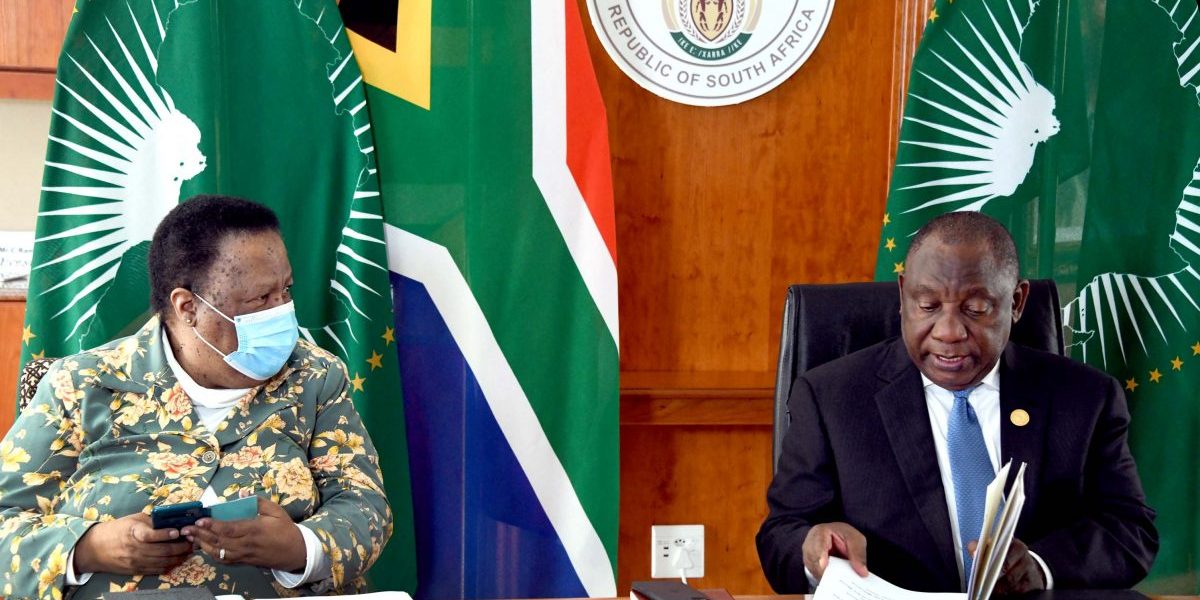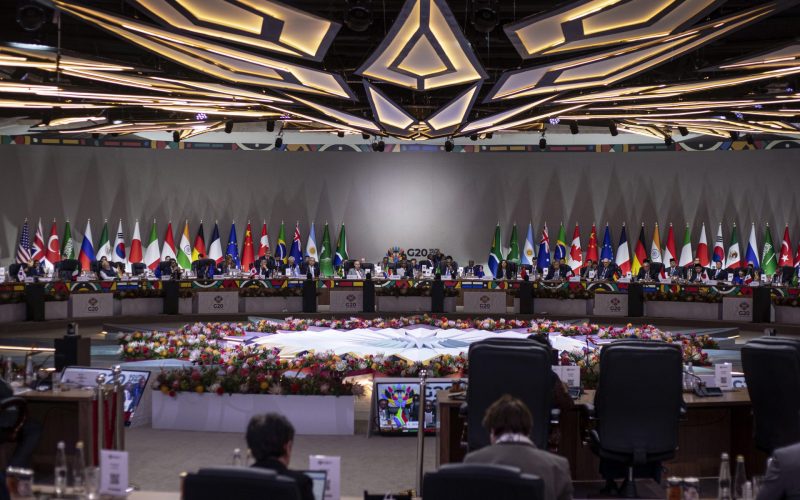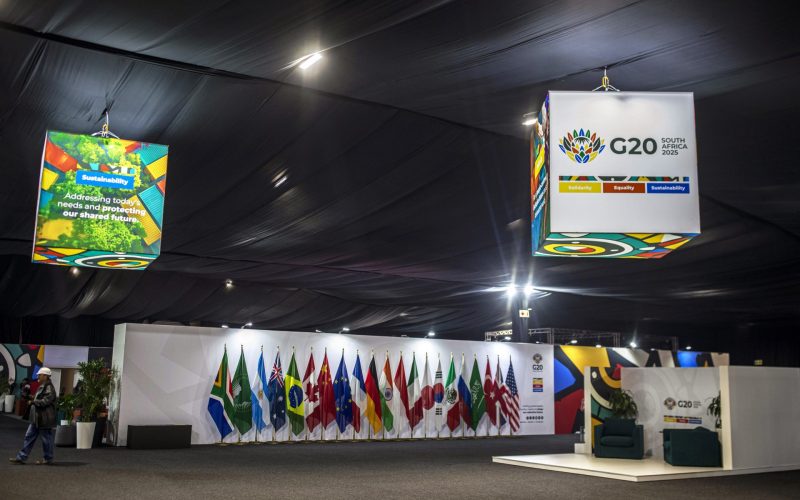This broad concept may include both the long term economic, security, cultural, political and geo-strategic concerns of the State and shorter term tactical considerations. They may also be driven by the need to exert whatever power they are able to muster in order to ensure that, even if they cannot insist on other States’ deferring to their preferences, they are at least taken into account in international negotiations and engagements. Finally, many States will seek to project their values in their international relations in order to demonstrate that there is a principled basis for their international relations and to build their international reputations. Balancing these diverse factors is, inevitably, a difficult task, and it is relatively easy to find examples of inconsistency and even hypocrisy in the foreign policy of all States.
We have tried to explore the dynamics created by the tensions between the values, interest and power that motivate foreign policy making and implementation in the case of South Africa in our book, “Values, Interest and Power: South African Foreign Policy in Uncertain Times” Each of the contributors to this book explore how South Africa has attempted to strike a balance between these three categories in a particular aspect of foreign policy.
The book also makes the important point that South African foreign policymakers, like those in many countries, do not have complete discretion in how they strike this balance. They are constrained by the South African Constitution, which is the supreme law of the land. This means that it is the foundation on which the country’s foreign policy must be built. It does this in three ways, that are discussed in more detail by Klaaren and Haliem, Fritz and Majola in their contributions to this symposium.
First, the Constitution, allocates responsibilities for the making of foreign policy. More specifically, the Constitution allocates the primary responsibility for making and implementing foreign policy to the Executive branch. It makes clear that this branch, acting through the President and Minister and Department of International Relations and Cooperation (DIRCO), is responsible for negotiating and signing international agreements, participating in international forums and meetings with other international actors, and managing South Africa’s diplomatic relations. It also has the responsibility to protect the security of the State and the interests of its citizens outside the country.
The Constitution also makes clear that the Executive does not have complete freedom of action in regard to foreign policy. It assigns to the legislature the responsibility to oversee the executive’s conduct in foreign policy and to ratify all international agreements entered into by the executive. Thus, at least in principle, the legislature has the final word before the international agreements the executive signs enter into force and the State is bound by its terms.
Both the executive and the legislature can be held accountable for the way in which they execute their constitutional responsibilities in regard to foreign policy. One way this takes place is through the activities of other constitutionally recognized bodies, such as the South African Human Rights Commission. This Commission is authorized to play an international role within the scope of its human rights responsibilities. Thus, for example, it acts as an observer at the UN Human Rights Council and can exercise oversight of the way in which the State implements specific human rights treaties.
Second, the bill of rights in the Constitution, is the clearest expression of the values that are expected to guide all governmental action, including in the foreign policy area. Thus, the other actors in South African foreign policy making, both those with Constitutionally determined responsibilities and others, can use the bill of rights to hold the executive accountable for its conduct of foreign policy. One example of this is that the Human Rights Commission has reviewed the executives’ performance on the UN Human Rights Council regarding LGBT rights in order to assess if it is complying with its constitutional obligations in regard to these rights. It would be unacceptable for the state to seek to undo at the international level, the rights that the constitution guarantees to its citizens at the domestic level.
It is important to note that the bill of rights does not only inform South Africans about their constitutionally protected rights. It also can be read by South Africa’s international interlocutors as an expression of the aspirations and values of the South African people, including in regard to the standards of conduct they expect from those who represent them in international affairs. Consequently, the bill of rights should play a role in guiding the conduct of South Africa’s foreign policy makers and officials.
Third, the fact that the Constitution is the supreme law of the land and that all actions are subject to it, means that foreign policy is subject to review by the courts. Thus, in principle all foreign policy actions and decisions can be tested for their legality, rationality and compliance with the bill of rights in the Constitution. As the articles in this symposium demonstrate, the courts have been willing to review a number of the executive’s foreign policy decisions. In doing so, they have been quite pragmatic in their approach and the level of scrutiny that they apply has varied depending on the facts of each case.
One other aspect of the relationship between the Constitution and foreign policy is that it underscores the linkages between foreign policy and domestic policy. This can be seen for example in the cases of the COVID pandemic and climate change. In both of these cases a global challenge requires the State to engage internationally in order to meet its domestic obligations in regard to the rights of its citizens. For example, the South African executive, in order to meet its obligations to provide South Africans with access to the necessary medicines, vaccines and equipment to deal with COVID, has to engage with such international actors as the COVAX initiative and the African Union.
However, there are also domestic issues that have international implications and demand the State to use their foreign relations in order to address the domestic issue. A good example in this regard in South Africa is the challenge of corruption. As the evidence being presented to the Zondo Commission demonstrates, the participants in the corrupt actions are both domestic and international companies and their activities have foreign policy implications. As Andrews shows in her contribution to this symposium, the challenge of corruption also has important implications for human rights in South Africa and the failure of the State to deal with the foreign policy implications of this challenge would have adverse consequences for its compliance with its constitutional obligations towards South African citizens.
The above, and the other contributions to this symposium suggest that three conclusions can be drawn about the role that South Africa’s Constitution plays in regard to foreign policy. First, it serves as the anchor to which all foreign policy must be tethered. This ensures that there must always be a link between what the executive does internationally and its domestic responsibilities. Second, while the executive has wide discretion in the foreign policy arena, it does not have absolute discretion and it can be held accountable by other actors for its compliance with its constitutional responsibilities. Third, as in all aspects of its activities, the State’s actions in foreign policy must have a legal basis, be rational and consistent with the bill of rights – and if necessary the courts can review its actions to ensure that they meet this standard.
The order in which the contributions to this book symposium will appear is as follows: Majola’s, essay, “The role of the Constitution and Courts in the making and implementation of foreign policy,” will come after this introduction. Next will be Fritz’s essay, “South Africa’s National Interest in Rights-Regarding African Economic Development.” Third, will be Klaaren and Halim, “South Africa’s National Interest in Rights-Regarding African Economic Development,” and last but not least will be Andrews’ review essay, “Corruption and South Africa’s Foreign Policy.”
The Role of the Constitution and Courts in the Making and Implementation of Foreign Policy
By Adv Bongani Majola
When It Comes to the Courts, There’s Nothing Really Foreign About “Foreign Policy”
By Nicole Fritz
What Role Does the Constitution Play in Shaping and Implementing South Africa’s Foreign Policy?
By Jonathan Klaaren and Daiyaan Halim
Corruption and South Africa’s Foreign Policy
By Penelope Andrews








